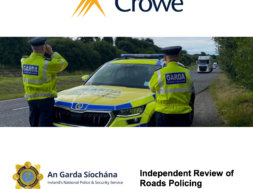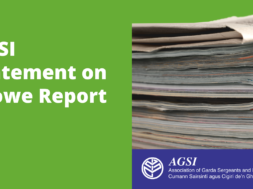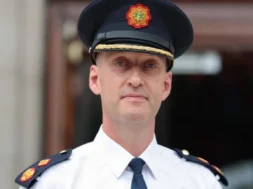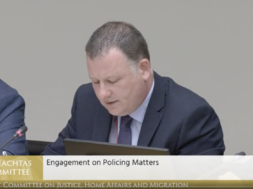Irish Independent, 21 AUGUST 2013
FRESH government cuts to garda overtime are expected to impact on the fight against crime.
But senior officers have vowed to ensure major operations will not be affected.
Frontline garda units have already been warned that the financial resources allocated to the force for the rest of the year have been further depleted. And they have been told policing demands must be prioritised.
Regular patrols, which have proven particularly successful in deterring the travelling gangs blamed for a spate of burglaries against vulnerable victims in rural areas, will also be tightened up.
The latest cutbacks, signalled to garda management by the Department of Justice, are being introduced in the wake of budget allocations imposed at the start of the year. They are being brought in as part of a drive in the public service to find €1bn in savings under the Haddington Road Agreement.
A senior officer admitted last night: “The big operations will continue, but heads of national units and local management at divisional and district level will now have to think twice before ordering their members to work overtime.
“We will manage these reduced budgets to the best of our ability, but it has to be accepted that we cannot hope to continue to achieve all of the results that we notched up in the recent past.”
A significant proportion of garda resources is currently being targeted at gangs suspected of being heavily involved in drug trafficking as well as cash-in-transit raids and other armed crimes.
These will not be hit by the new constraints. However, follow-up investigations into crime will come under the financial microscope, and it is likely that routine but vital tasks such as taking witness statements will no longer be covered by overtime.
Garda management is hoping the deal negotiated with the rank and file Garda Representative Association and the Association of Garda Sergeants and Inspectors will help to offset some of the cuts.
Concessions include members of the force up to the rank of inspector working 30 hours a year without pay instead of sustaining a wage cut implemented on more senior ranks, and a reduction in the overtime rate from time-and-a-half to time-and-a-quarter.
PRUDENT
But officers in the frontline argue that while those measures will be useful in reducing costs on tasks such as providing policing for large sports or music events, they will be less effective in trying to manage budgets for cracking down on organised crime.
The full extent of the latest cuts has not yet been spelled out, but they follow a reduction of €10m in the overtime budget for this year.
This reduction was denied by the department when it was revealed by the Irish Independent last January, but has since been implemented. The initial allocation of €44m for overtime this year represents a drop of €10m on the funding allocated last year, and is almost 44pc down on the amount of three years ago.
Assistant Garda Commissioner Derek Byrne, who is in charge of the national support units, has circulated a memo to his senior officers outlining the reduced budgets and calling for prudent management of prioritised resources. He said: “We will have to look at competing demands for available resources to ensure we utilise them to maximum effect.”
An announcement on progressing a garda recruitment campaign is expected within weeks, while applications are being sought for promotions to sergeant and inspector.
It is likely that vacancies for around 80 sergeants and 20 inspectors will be filled.
By Tom Brady Security Editor
Irish Independent









